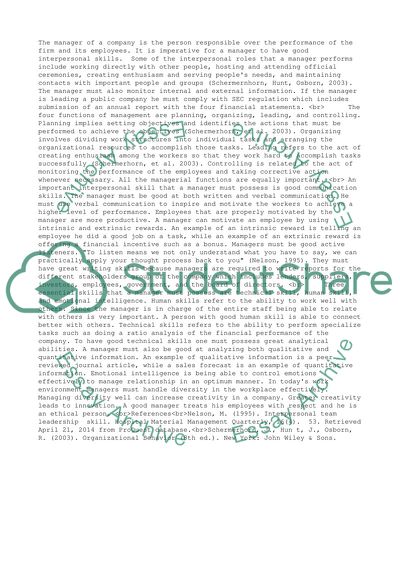Organizational behavior - interpersonal skills and managerial roles Essay. Retrieved from https://studentshare.org/business/1641520-organizational-behavior-interpersonal-skills-and-managerial-roles
Organizational Behavior - Interpersonal Skills and Managerial Roles Essay. https://studentshare.org/business/1641520-organizational-behavior-interpersonal-skills-and-managerial-roles.


